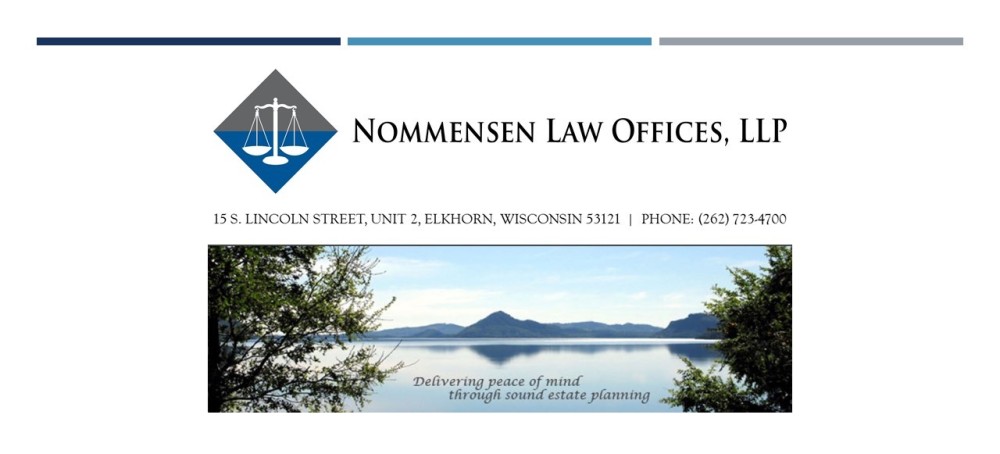Wills, Trusts, & Estate Planning
Estate planning is the process of putting your affairs in order before you die or become incompetent. The cornerstone of most estate plans is a Will. Your Will allows you to do the following:
- Name the beneficiaries who will receive your estate after you die
- Name a personal representative who will administer your estate
- Name a guardian who will raise your minor children (if any)
In addition to your Will, your estate plan should also include a financial power of attorney and a health care power of attorney. Under certain circumstances, we also may advise the use of a trust.
A financial power of attorney allows you to nominate someone to make financial decisions for you. It is an important document to have in the event that you become incapacitated, or for any other situation in which you may need someone to transact business on your behalf (pay your bills, file your taxes, apply for governmental assistance, etc.). Without it, it may be necessary for your family to ask the court to appoint a guardian for you. This process is called a “Guardianship” and can be emotional and expensive.
A health care power of attorney allows you to appoint someone to be your “agent” to make health care decisions for you in the event that you lose the ability to make those decisions for yourself. Without it, your treatment decisions could wind up in the hands of estranged family members, doctors, or even judges, who may know very little about your wishes and preferences.
If you’re like most people, you aren’t eager to start thinking about these matters. However, the peace of mind that results from securing an estate plan is priceless.
Families with Minor Children
If you have minor children, a will is especially important. In your Will, you name the person you want to raise your children in the event that something should happen to both you and your spouse. If you fail to make a Will naming a guardian for your children, it will be up to a judge to determine who will raise your children.
In addition, when you leave behind minor children and have no will, your children are legally entitled to their respective shares of your inheritance upon reaching age 18. The problem with this is that most 18-year olds are not able to handle a windfall of money in a responsible manner. If you have an estate plan, you can decide at what age you want it to be distributed to them, and who will manage your children’s inheritance on their behalf until that time.
At Nommensen Law Offices, we will help you structure a cohesive estate plan that ensures the personal and financial security of your minor children.
Special Needs Trusts
If you want to leave money or property upon your death to a disabled person, it is extremely important to plan carefully. Otherwise, you could jeopardize your loved one’s eligibility for SSI or Title 19 / Medicaid.
At Nommensen Law Offices, we are familiar with the complex Wisconsin laws relating to SSI and Title 19 / Medicaid. We can help you include your disabled loved one in your estate plans without jeopardizing their eligibility for governmental assistance.
The primary tool for accomplishing this is the Special Needs Trust (also called a Supplemental Trust). Instead of leaving property directly to the disabled person, you leave it to the special needs trust. You also choose someone to serve as trustee, who will manage the trust on behalf of the person with the disability.
Estate Planning for your Pets
Recently, increasing numbers of people have been including their pets in their estate plans. This practice reflects a dramatic change in the way that we as a society now think about our pets – we consider our pets as beloved family members, rather than items of property. Naturally, pet-owners want some assurance that our animals will be well cared for after our death.
There are a variety of ways to provide for your pets in your estate plan. It may be as simple as including a sentence in your Will providing for a caregiver, or you may wish to establish a “Pet Trust” to allocate money for your pet’s care. Our attorneys are experienced in this area and will help you structure your estate plan to make sure that your pet is taken care of.
Estate Planning for those who Anticipate Entering a Nursing Home
The cost of nursing home care is becoming tremendously expensive. Title 19 (Medicaid) is a governmental program that pays for the long-term care of certain individuals. Medicaid assistance, however, is provided only to those individuals who are “eligible”. A little planning in advance can ensure that when the time comes, you are eligible for governmental assistance – which can save you and your heirs thousands of dollars.
Let Nommensen Law Offices help you plan ahead, so that when the time comes to enter a nursing home, you will be eligible for Title 19 assistance.
For more information on Title 19/Medicaid, click here.
